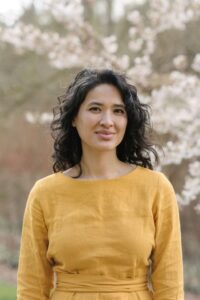Population Research Discovery Seminars

Displacing Kinship: an Affective and Aesthetic Study of the Vietnamese Refugee Family
Linh Thủy Nguyễn, American Ethnic Studies, University of Washington
Parrington Hall Room 360
To Join By Zoom: Register HERE
04/05/2024
12:30-1:30 PM PT
360 Parrington Hall
Co-Sponsor(s):
How does the way we study refugee inclusion shape family and national history? This research examines how second-generation Vietnamese American texts situate themselves in relation to the past and their family history, and squarely in the war. Policy makers and scientists made quick work of predicting the successful assimilation of Vietnamese refugees into the US, speculating that their ties with the US government, projected model minority status, and proximity to white values would spare them the “downward assimilation” faced by their Black and brown neighbors. Through close readings of sociological studies of refugee resettlement and Vietnamese American art, music, and writing, I show how a racialized ideal of the national family became the site for projecting desires and disappointments of American life. Second-generation works reveal that narratives of familial loss are situated not only in displacement and war, but rather, in present experiences of economic insecurity and racism. Through ethnic studies and feminist and queer-of-color critique, Displacing Kinship offers a critical approach for reading family tensions and interpersonal conflict as affective investments informed by the material, structural conditions of white supremacy and racial capitalism.
Linh Thuỷ Nguyễn, Ph.D. is assistant professor in American Ethnic Studies, adjunct assistant professor in Gender, Women’s and Sexuality Studies, faculty associate in the Center for Southeast Asia and its Diasporas and the Harry Bridges Labor Center at the University of Washington. She teaches classes on Asian American and Southeast Asian American cultural studies, immigration and refugee studies, Asian American feminisms, war and race. Her research explores the interpersonal and structural relationships between history, memory, race, war, migration and family.